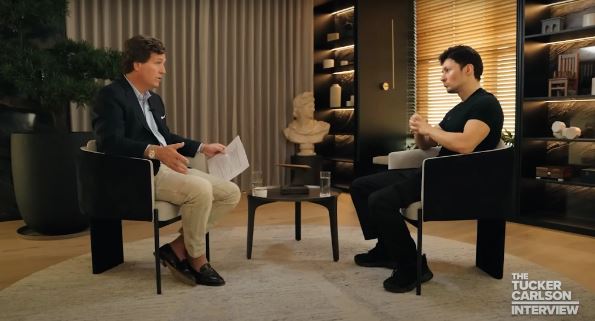Pavel Durov, the enigmatic founder of Telegram, has long been known for his anti-establishment attitude and dedication to free speech. This reputation dates back to over a decade ago when, in defiance of Russian authorities’ demands to shut down opposition politicians’ pages on his Facebook-like site, Vkontakte, Durov posted an image of a hoodie-wearing dog with its tongue out, captioned as his “official response” to intelligence services.
French President Emmanuel Macron addressed Durov’s arrest on Monday, affirming France’s commitment to freedom of expression while emphasizing that such freedoms must exist within the boundaries of the law. This incident has sparked a heated debate over the delicate balance between free speech and the responsibilities of tech platforms in curbing illegal activities. Prominent figures like Elon Musk and Edward Snowden rushed to defend Durov, with the hashtag #FreePavel gaining traction on X (formerly known as Twitter).
Telegram released a statement on Sunday asserting that it complies with European Union laws and emphasizing that it is “absurd” to hold a platform or its owner responsible for the misuse of the platform by others. This response is consistent with Durov’s long-held belief that privacy and freedom of speech should not be compromised, even in the face of threats like terrorism. In a 2015 post, Durov argued that “privacy, ultimately, is more important than our fear of bad things happening.”
Durov’s commitment to these principles has made Telegram a popular choice for users in countries like Russia, Iran, and others with strict government controls. However, this same laissez-faire approach has also made the platform a haven for extremists, criminals, and other nefarious actors. Despite the criticism, Durov has remained steadfast in his belief that governments should not interfere with how people communicate online.
Born in 1984 in the Soviet Union, Durov moved with his family to northern Italy at the age of 4. After the Soviet Union collapsed, the family returned to St. Petersburg, where Durov and his brother, Nikolai, who is now Telegram’s chief technology officer, developed an early interest in coding and mathematics. Inspired by the early success of Facebook, Durov launched Vkontakte in 2006, which quickly became Russia’s leading social network. However, the platform’s popularity also attracted the attention of the Kremlin, leading to increasing pressure from Russian security services.
In 2014, after refusing to comply with government demands to hand over user data, Durov left Russia and eventually settled in Dubai, where he believed his business would face less interference. Since then, he has fought numerous battles with major governments and tech companies, including Apple, over content controls. Telegram has been banned temporarily or permanently in 31 countries, underscoring the platform’s controversial nature.
Durov’s personal life is as unconventional as his business philosophy. Known for his eclectic lifestyle, he has shared on social media that he has fathered over 100 children as a sperm donor in 12 countries, claiming he did so to help destigmatize the topic and support friends struggling with infertility. His posts often feature a mix of techno-optimism, trolling, and a fascination with self-improvement, as evidenced by his frequent shirtless photos and quotes from figures like Marcus Aurelius.
Despite his nomadic lifestyle, Durov remains deeply involved in Telegram’s development, often prioritizing the app’s features over monetization or stricter content moderation. His commitment to privacy and free speech continues to shape Telegram, which now boasts nearly one billion users worldwide, outpacing even X in size.
However, Durov’s arrest in France has cast a shadow over his legacy, raising questions about the limits of free speech and the responsibilities of tech platforms. French prosecutors have linked his arrest to investigations into serious crimes, including child pornography, fraud, drug trafficking, and money laundering. As Durov remains in custody, the debate over Telegram’s role in facilitating both free expression and criminal activity continues to intensify.

